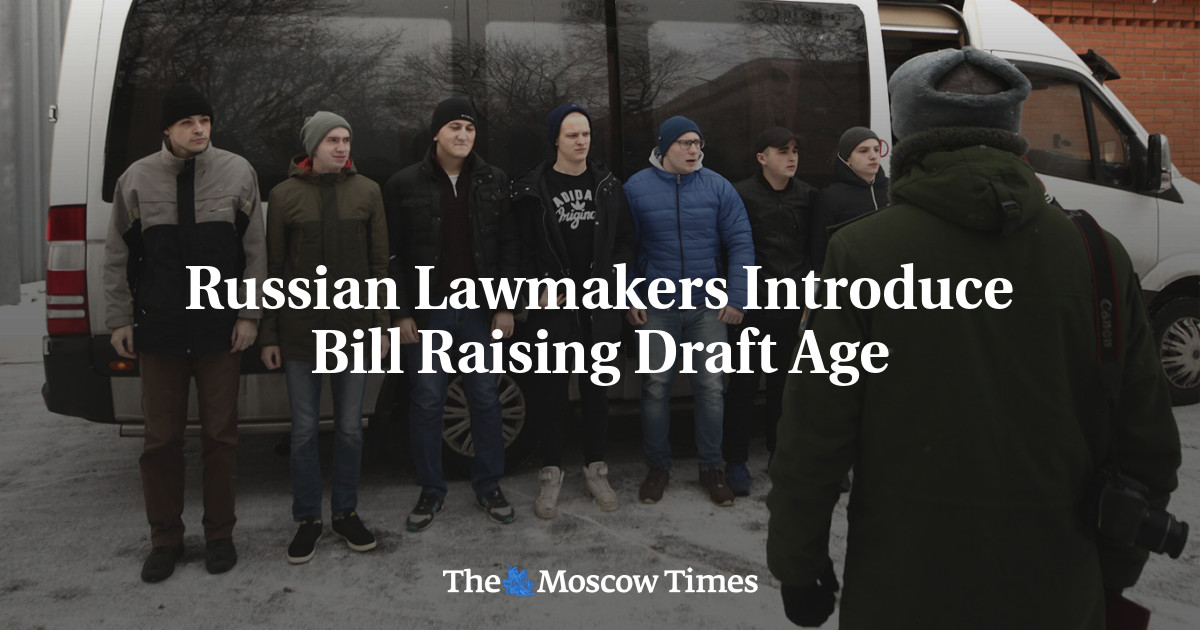
Russian lawmakers introduced a bill raising the upper age limit for military conscription on Monday, drawing criticism that it may be attempting to compensate for troop losses in Ukraine by expanding eligibility for mobilization.
At present, Russian law requires men aged 18-27 are required to perform military service.
The new bill, which was authored by State Duma Defense Committee chair Andrei Kartapolov and two other deputies from the ruling United Russia party, raises the upper age limit for conscription to 30.
It also mandates the gradual raising of the minimum conscription age, increasing it to 19 in 2024, to 20 in 2025, and finally to 21 in 2026.
Critics of the bill have accused its authors of seeking to offset Russia’s mounting losses in Ukraine by increasing the number of men eligible for conscription in the short term.
The new bill’s authors touted its guarantee of higher education for conscripts as well as the fact that it would save money normally spent from the state budget on medical exams for younger conscripts, who are less likely to be called up to fight.
The introduction of the bill follows President Vladimir Putin’s endorsement of Defense Minister Sergei Shoigu’s proposal to increase Russia’s combat personnel from 1.15 million to 1.5 million in December.
Shoigu said at the time that the move would “improve the composition and the structure” of the Russian Armed Forces and respond to “NATO’s growing military potential close to Russia’s borders.”
While Russian law does not allow for conscripts to be deployed outside its borders, this rule would not apply to the four partially occupied Ukrainian regions that Putin claimed to have annexed last year.
Under the legislation, adult men under 21 years of age will be able to voluntarily join the military.
Having gained Putin’s approval, the bill is almost certain to become law and be sent to Putin for his signature after undergoing three readings in the State Duma and one in the upper-chamber Federation Council.
Putin’s announcement of a “partial” mobilization of reservists for the war in Ukraine in September 2022 sparked an exodus of tens of thousands of fighting-age Russian men abroad.